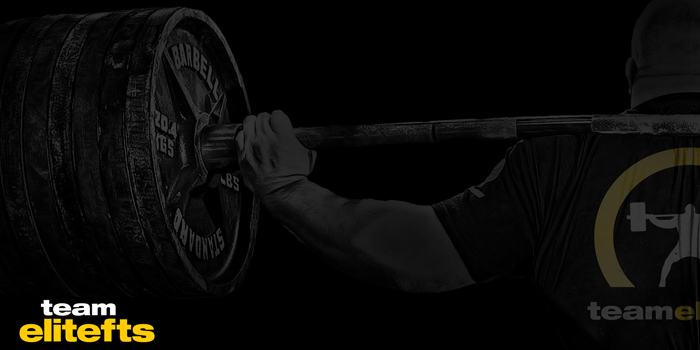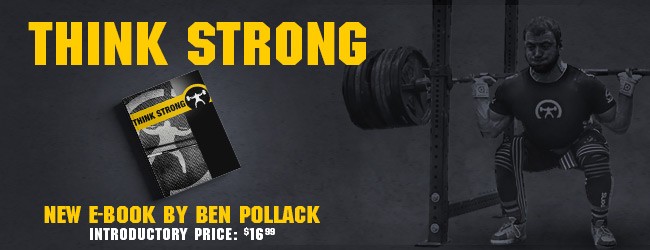
Well, this weekend at the UPSA Tribute didn’t go my way—and if I’m being completely honest, I’m not surprised. As it turns out, no matter what kind of mindset you have going in, meet prep is really damned hard. I probably should have realized that up front, but hey: it’s easy to let your enthusiasm get the better of you. I earned my regrets, and I’m proud of that, at least.
The Background
If you remember my US Open meet recap from May, you know that I had lost some of my enthusiasm for powerlifting following my wins at some big meets the previous year. I decided to do the Open anyway, and I finished fourth—but I won back all of that passion for picking up heavy shit, and a lot more. So I decided to forego the long offseason I had planned and to jump straight into meet prep for the Tribute.
It seemed like a great idea: a chance at redemption at a big meet, just an hour drive from Austin, and an immediate goal to direct my newfound energy toward. It seemed like such a great opportunity, in fact, that I made one really huge mistake.
The One REALLY Huge Mistake
I decided that because this was technically a local meet for me, it would be the perfect opportunity to drop back down to the 181-pound weight class. I’d been competing at 198 for the past year and built up to a solid 220 pounds during my offseason before the US Open, so 181 was a big ask. At the same time, if I’m assessing my strengths as a lifter, my ability to manage enormous weight cuts is way up there, and I was totally confident I could do it.
And I could—but at a cost. I had to diet really hard to drop down to 200 pounds, and in the process, I lost a little bit of muscle. Not a whole lot; certainly nothing that will take me long to put back on. The problem was that at 200 pounds, my bodyfat percentage was extremely low—about 2-3 weeks out of stage-level conditioning—and I needed to maintain that leanness for quite a while to get used to the different leverages that come with a decreased bodyweight. After dieting a bit to come in light for the Open, I was looking at a solid 20+ weeks of caloric restriction and hard, heavy training. That combination, obviously, wasn’t sustainable.
So, I probably shouldn’t have been surprised when I suffered a quad tear four weeks out from the meet, huh?
I wasn’t, to be honest, and I probably should have dropped out at that point. In fact, I talked with Dave Tate, and that’s exactly what he told me:
This is not worth getting hurt. Please keep in mind this is coming from someone that never pulled out of one meet and lifted very hurt many times. NOT one of them was worth it. They were all my worst performances or I got hurt worse. If I could back I am sure I would still do it but vowed to not let anyone else do this without me telling them not to.
You really needed the break when you first planned on it. All the time since then you have been running on fumes… Nobody is able to compete all the time and make progress. If they do they are really not making progress but just getting better at displaying the strength they already have. You MUST have down time to heal and then bring up weak points. By not doing so you are killing your true potential and mark you can leave on the sport.
I should have listened to Dave, of course, and logically I knew that—but emotionally, I just wasn’t strong enough to quit. Finding the strength to quit is a topic for another blog post, one that I’m looking forward to writing next, but I didn’t have it this prep. I had sacrificed so much to get that point (and I had put my coach, Jacob, and my fiancée, Staci, through so much stress in the process) that I was more afraid of the regret of not knowing what might have been than I was afraid of the risk of failure or reinjury. Misplaced priorities, to be sure, but that’s the decision I made, and I have to own it. I hope no one thinks less of me for that, but I certainly would understand if he or she did.
What Actually Happened
I made weight with no issues. In fact, it was the easiest cut to 181 in at least three years; I spent less than two hours (total time) in the sauna and weighed in at 82.0 kilos, feeling pretty good all things considered. I rehydrated well with some nutrition advice from bodybuilder Rob Impastato, the owner of Big Tex Gym (we’ve got some big things planned together, so stay tuned for those). I didn’t count, but I estimate that I packed in about 6,000 calories and 1,000 grams of carbs the day of weigh-ins, and come meet day, I felt pretty fantastic—not at all bloated or sluggish. I went from 181 at 9 AM to 210.4 by the time I went to bed at 10 PM that night.
My day fell apart pretty quickly, though. Squat warmups felt great up until 435 when I knew that there was no way I could hit something heavy enough to win without risking serious injury—the kind that could end my career. It was an obvious decision to take a token squat and hope that I still might pull 792 for an American record deadlift. I did bench light just to keep my head in the game, but as my bench isn’t competitive enough to earn any records, there was no point in pushing.
Deadlifts weren’t to be, either. I didn’t have any pain pulling, but I couldn’t get my hips in the right position to break the bar off the ground while also pulling the slack out. I took my opener at 711 and called it a day.
Moving Forward
I honestly expected to be more disappointed about this meet than I am—I think I got all of the disappointment out of the way after that initial injury, so there just wasn’t much left in terms of expectations. That’s a good thing because I’m really excited for the future!
- Rather than fixating on another meet, I’m taking Dave’s advice for once and planning out my long-term goals rather than short-term ones. I’m going to keep those private for now, but I would like to share the steps I’m taking right now to start making progress again after a year of stagnation. I’ll also follow up with a future blog post on making short-term goals that support the big picture, as I think that’s really important when you’re trying to tackle anything that takes longer than a few months to accomplish.
- Starting now, I’ll be working with Chris Duffin and Brandon Senn of Kabuki Strength for my own programming. As much as I love figuring out what works and what doesn’t, the mental stress of prep has gotten to me far too much. By letting Chris and Brandon take the reins, I’ll free myself to focus on what I do best: lifting heavy shit.
- I’m also done with the 181 class, forever. Yeah, I know I said that after my poor performance at the Naturally Fit Expo in Austin back in 2017, but this time, I actually mean it. I’d like to get up to 220 pounds this offseason and then cut back just a bit before competing at 198 again.
- Speaking of competing at 198, my next meet will be the US Open at that weight class. I AMRAP taking a much-needed offseason till then to allow my body to rest, heal, and actually get stronger, and I’m really excited about that. Trust me, I need it! Eight months should be plenty of time to accomplish all of this and more.
As always, I’d like to end by thanking everyone for their incredible support. It means the world to me.











4 Comments